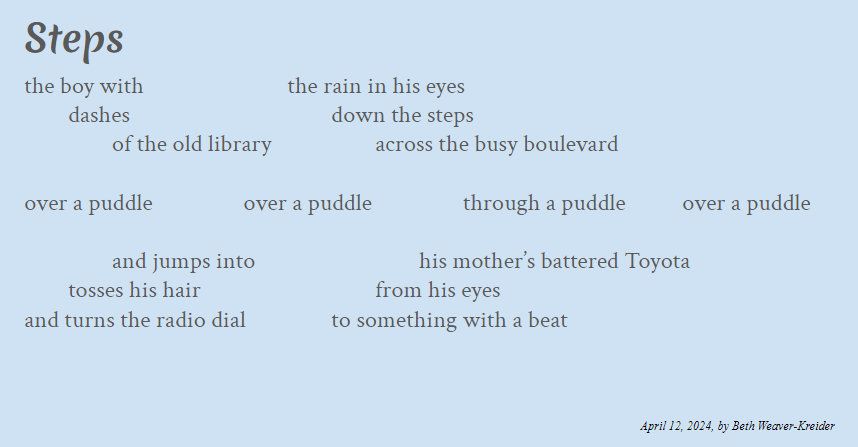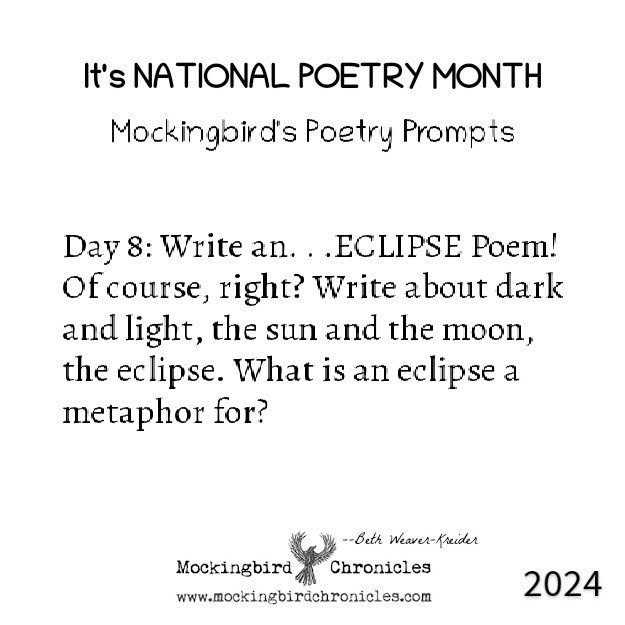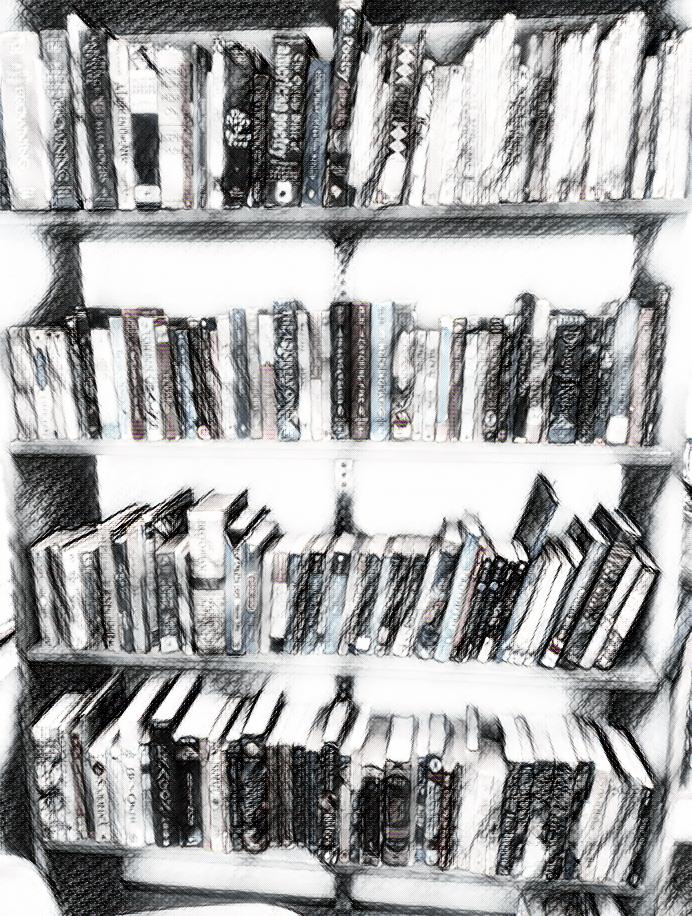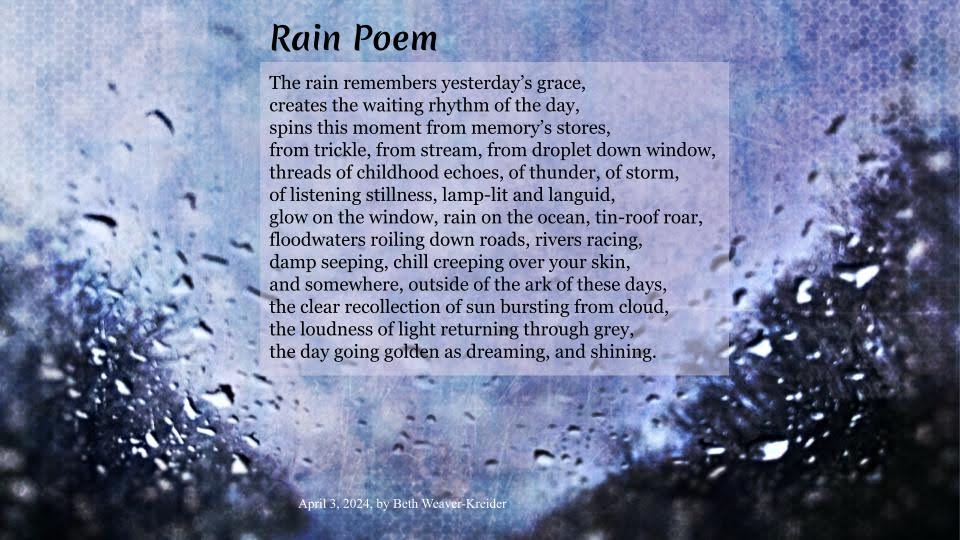

I’m flying a little by the seat of my pants these days, trying to maintain all my daily rhythms, and still not get stressed by all the little things to keep up with. SO last night, I just didn’t do my daily April poem-a-day post here. Sometimes I beat myself up a bit for not being the energy powerhouse that so many of my friends seem to be. I need to protect my energy, gather and store.
Gratitude List:
1. The Dawn Chorus these days. Oh, the birdsong!
2. All the different smells
3. Friends and beloveds who invest time and heart in each other
4. How the beauty just explodes all of a sudden here in the spring. One minute you notice the leaves of the bleeding hearts appearing, and then SUDDENLY they’ve bloomed!
5. Movements for peace and justice. The people who are doing the work, whatever their piece of the work may be.
May we walk in Beauty!
“I love to write to you – it gives my heart a holiday and sets the bells to ringing.”
Emily Dickinson
“Sorrow prepares you for joy. It violently sweeps everything out of your house, so that new joy can find space to enter. It shakes the yellow leaves from the bough of your heart, so that fresh, green leaves can grow in their place. It pulls up the rotten roots, so that new roots hidden beneath have room to grow. Whatever sorrow shakes from your heart, far better things will take their place.” —Rumi
I called through your door,
“The mystics are gathering in the street. Come out!”
“Leave me alone. I’m sick.”
“I don’t care if you’re dead!
Jesus is here, and he wants to resurrect somebody!” —Rumi
“Don’t be satisfied with stories, how things have gone with others. Unfold your own myth.” ―Rumi
“Thousands of candles can be lit from a single candle, and the life of the candle will not be shortened. Happiness never decreases by being shared.” ―Buddha
****”
Some words on my River, from Robert Louis Stevenson:
“I have been changed from what I was before;
and drunk too deep perchance the lotus of the air,
Beside the Susquehanna and along the Delaware.”
―Robert Louis Stevenson
“. . .and as I saw, one after another, pleasant villages, carts upon the highway and fishers by the stream, and heard cockcrows and cheery voices in the distance, and beheld the sun, no longer shining blankly on the plains of ocean, but striking among shapely hills and his light dispersed and coloured by a thousand accidents of form and surface, I began to exult with myself upon this rise in life like a man who had come into a rich estate. And when I had asked the name of a river from the brakesman, and heard that it was called the Susquehanna, the beauty of the name seemed to be part and parcel of the beauty of the land. As when Adam with divine fitness named the creatures, so this word Susquehanna was at once accepted by the fancy. That was the name, as no other could be, for that shining river and desirable valley.” ―Robert Louis Stevenson
“There may be times when we are powerless to prevent injustice, but there must never be a time when we fail to protest.” ―Elie Wiesel
Rob Brezsny:
Plato said God was a geometer who created an ordered universe imbued with mathematical principles. Through the ages, scientists who’ve dared to speak of a Supreme Being have sounded the same theme. Galileo wrote, “To understand the universe, you must know the language in which it is written. And that language is mathematics.”
Modern physicist Stephen Hawking says that by using mathematical theories to comprehend the nature of the cosmos, we’re trying to know “the mind of God.”
But philosopher Richard Tarnas proposes a different model. In his book “Cosmos and Psyche,” he suggests that God is an artist—more in the mold of Shakespeare than Einstein.
For myself―as I converse with God every day―I find Her equally at home as a mathematician and artist.

















